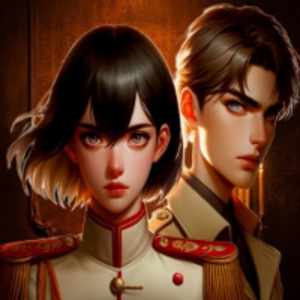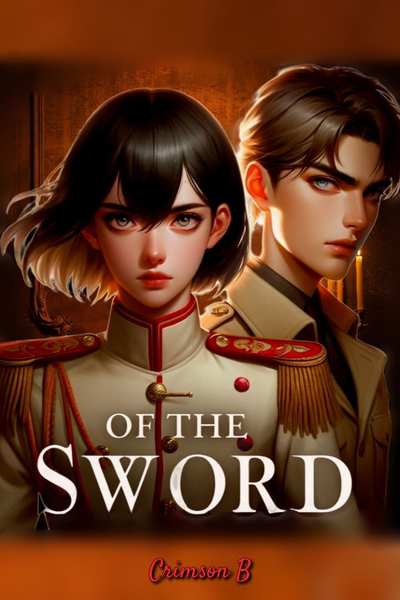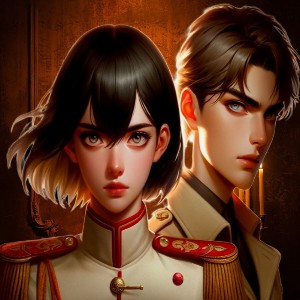"Industrialisation," Captain Oriana articulated each syllable with care, delving into the explanation of a significant shift from the primarily agricultural economy they were accustomed to. "This new economy is presumed to simplify our lives. Machines will be introduced, replacing manual labour. They would come in various forms - some designed to work the fields, others to aid in the bakeries and so forth. Each designed with a specific purpose, varying in size and appearance, these machines are said to be quicker and more efficient, completing tasks usually done by people."
Adara raised a question, curiosity shining in her eyes, "How do these machines function? Are they available for use at any time we please?" Oriana shrugged her shoulders, her understanding on the subject matter limited. "They require fuel to operate. Though I'm not entirely certain about the details, I know that fossil fuels, such as coal, found deep in the earth are burnt to produce energy. I can't provide further details on how exactly this energy drives the machines, but fuel is a necessity."
Storm's gaze fell to the ground, musing over the mechanics of a fire. "If machines require these fossil fuels that are burnt to create energy, they would need constant refuelling. And if large amounts of these fuels are burnt, wouldn't the resulting smoke be harmful? We've experienced forest fires and the smoke made breathing difficult, even casting a lingering fog over the village."
Oriana's eyebrows arched at Storm's insight. "An astute observation, Storm. Yes, that would indeed happen. However, according to those who've visited neighbouring lands, despite the adverse effects of smoke, these machines have made living more convenient. And whether we approve or not, it seems inevitable that our land will follow suit. We have to adapt or risk falling behind, becoming vulnerable to enemies. Progress seems to be the emperor's only commendable pursuit."
Rubbing his temples, Kenji groaned, "This is too much information to digest." Oriana nodded in sympathy, acknowledging the overwhelming influx of new concepts. Astrid redirected the conversation to the elite class they had observed in the marketplace. "Are those adorned in fine silk the wealthy ones?" she inquired. "Indeed," Oriana affirmed, "Their lavish garments and abundant jewellery are distinctive identifiers."
Atlas, recalling the glinting adornments he had noticed, asked, "Where does this 'jewellery' originate?" Oriana explained the concept of trade between allies, where goods are exchanged for other commodities. "Certain lands excel in crafting jewellery. The emperor boasts the largest collection of golden ornaments," she added. Kenna rolled her eyes, remarking sarcastically, "Of course he does."
Astrid, thinking back on her observations, wondered aloud, "Is it common to see the wealthy expressing affection in public? It's rather unusual for our village, where even parents are rarely seen exchanging a cheek peck."
Oriana considered her words carefully, "Villages tend to be more reserved. Here, public displays of affection are quite ordinary. Don't be surprised if you see unmarried individuals participating as well."
Upon seeing the group's shocked expressions, she elaborated on the concept of dating. "If two people are interested in each other, they may enter a relationship. This grants them certain liberties, such as holding hands or kissing. These relationships are usually exclusive, and if things don't work out, they separate."
Kenji wore a baffled expression. "So, one can be exclusive with multiple people, albeit at different times? And what happens if things never work out? That sounds emotionally draining." Oriana conceded, "Yes, it can be quite taxing. It demands a great deal of time and attention, which could distract from other priorities. That's why relationships aren't advised during training days. Post training, you are free to make your own choices."
Atlas voiced a concern, "Captain, what happens if there's no war during our six years? And do first-year trainees get deployed in a war?" Oriana appreciated the question, explaining, "If no war erupts during your training, then you are deemed fortunate. Only those in their third year of training and beyond, along with the captains and generals, are dispatched to defend the land. If peace persists, you can return to your village, become a merchant in the capital, work in the palace as a servant or guard, or even stay in the army as an instructor like I did. While training, food and shelter are provided. Thereafter, you have to fend for yourself. I earn gold and silver coins for my service as a captain."
As the group absorbed the flood of new information, Oriana clapped her hands, signalling an end to the discussion. "With that settled, we should make haste before the sun sets. I'll lead you to the barracks first, followed by a visit to the mess hall for supper."
© Crimson B











Comments (0)
See all